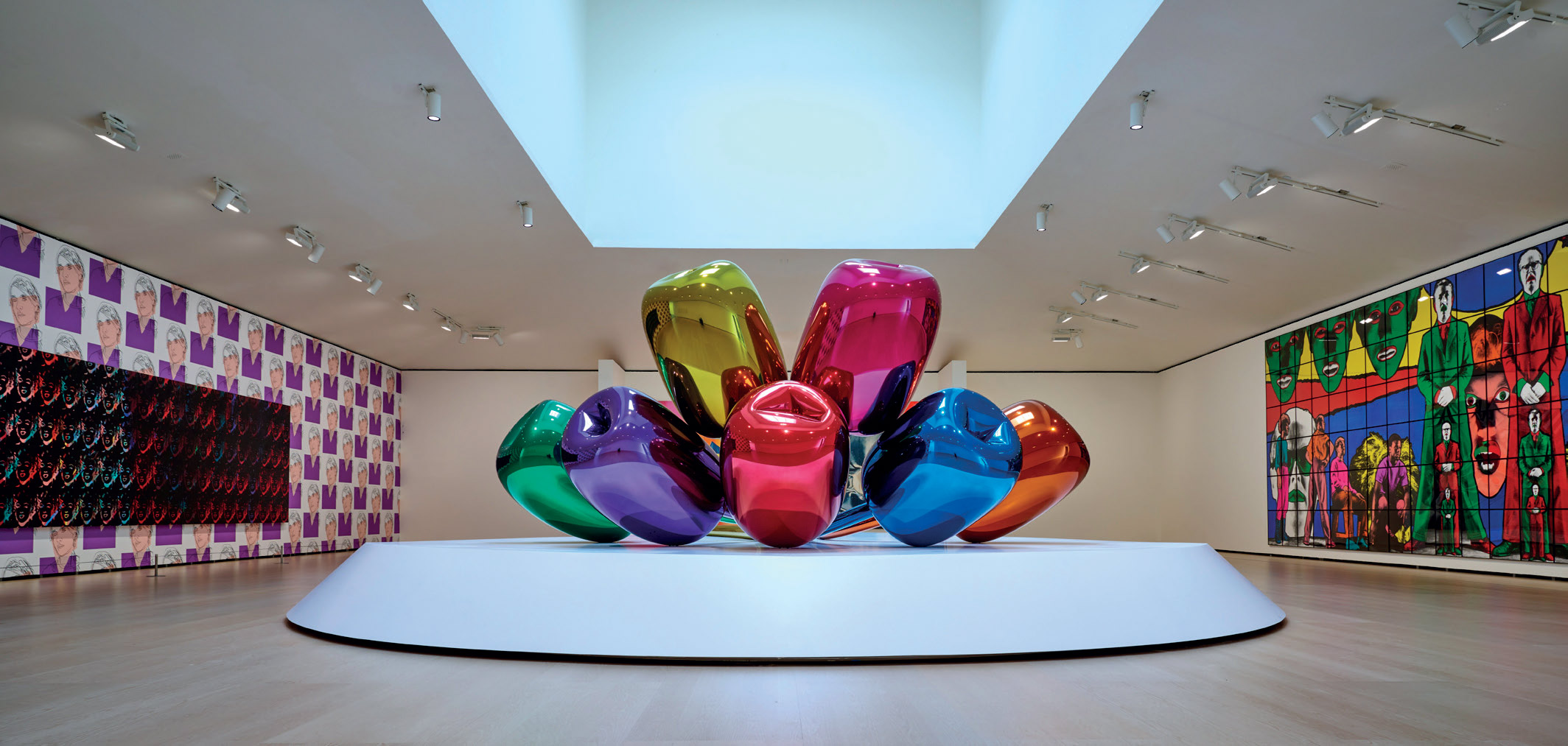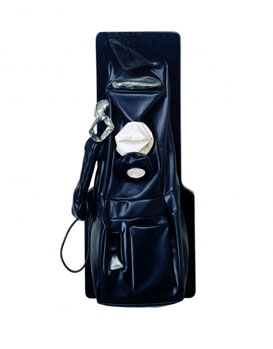Gallery 103
06.08.2005 - 06.04.2006
Working with a wide range of subjects, styles, materials, and techniques, Robert Rauschenberg has been called a forerunner of virtually every postwar movement since Abstract Expressionism. At the time that he began making art in the late 1940s, his belief that painting relates to both art and life presented a direct challenge to the prevalent modernist aesthetic. The celebrated Combines begun in the mid-1950s brought real-world images and objects into the realm of abstract painting and countered sanctioned divisions between painting and sculpture.
These works established the artist's ongoing dialogue between mediums, between the handmade and the readymade, and between the gestural brush stroke and the mechanically reproduced image. Jointly acquired by Guggenheim Museum Bilbao and Solomon R. Guggenheim Museum, Barge (1963), a monumental work in black, white, and gray, incorporates many of the motifs that Rauschenberg used again and again in his 79 silkscreen paintings: the urban environment, athletes, space exploration and flight, modes of transportation, and examples from art history.
This installation highlights the generation of American artists that in the early 1960s rejected the primacy of the gesture and self-expression so dear to the exponents of Abstract Expressionism. Basing their techniques, style, and imagery on certain aspects of mass reproduction, the media, and consumer society, these Pop artists took inspiration from advertising, pulp magazines, billboards, movies, television, comic strips, and shop windows. These images, presented with (and sometimes transformed by) humor, wit, and irony, can be seen as both a celebration and a critique of popular culture. Included here are works by some of the movement's pioneers: Jim Dine, Roy Lichtenstein, Claes Oldenburg, James Rosenquist, and Andy Warhol.
Claes Oldenburg
Soft Pay-Telephone, 1963
Vinyl filled with kapok, mounted on painted wood panel
118.2 x 48.3 x 22.8 cm
Solomon R. Guggenheim Museum, New York
Gift, Ruth and Philip Zierler in memory of their dear departed son, William S. Zierler, 1980


